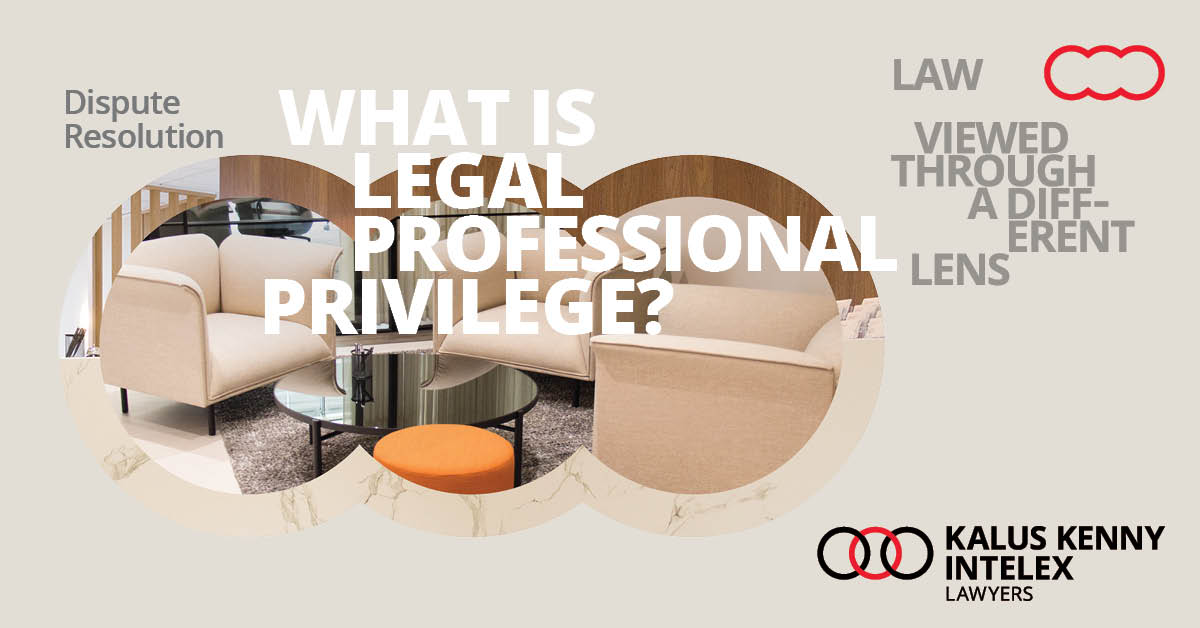What is ‘Legal Professional Privilege’?
Legal Professional Privilege (or client legal privilege) protects confidential communications between a lawyer and client under two main ‘dominant purpose’ categories:
- Legal advice privilege – protects confidential communications where they have been prepared by a client, lawyer or third party for the dominant purpose of providing legal advice.
- Litigation privilege – protects confidential communications where they have been prepared for the dominant purpose of actual, anticipated or pending legal proceedings.
Both written and verbal forms of communications may attract legal privilege, including notes or memoranda of verbal conversations.
If legal privilege applies, it can be asserted to resist claims for the privileged communications to be disclosed (and the Courts will uphold such a claim except in the case of rare statutory powers expressly requiring the disclosure of privileged communications). Privilege does not apply if it is used against the public interest to further an illegal or improper purpose, or if it has been waived.
This article addresses privilege under common law. Legal professional privilege is also protected under state and commonwealth legislation, such as the Evidence Act 2008 (Vic), where it is described as client legal privilege.
When is legal privilege waived?
Legal privilege can be waived if a party has conducted itself in a way that is inconsistent with the maintenance of confidentiality. This means that a waiver can occur irrespective of whether the party intended for the privilege to be waived or not.
A waiver may apply generally over the privileged communications, in respect of certain issues only, or over certain parts of a document.
For the most part, disputes over privilege relate to implied waiver or the unintentional disclosure of privileged communications. If a parties’ action shows that they have objectively abandoned confidentiality by the way they have used the document or information, legal privilege will be lost.
What are some common unintentional and implied waiver scenarios?
While cases concerning legal privilege and waiver are specific to their facts, there are several common principles that clients who intend to assert privilege should bear in mind.
For example, legal privilege is often waived where:
- the gist or substance of a privileged communication is provided to another party (as is often the case when a client discloses to another party, in an attempt to seek an advantage, that they ‘have received advice from our lawyers that…’);
- another document or communication is produced that discloses the gist or substance of a privileged communication;
- the legal privilege holder puts their state of mind in issue or uses a privileged communication to refresh their memory.
How can clients prevent unintended or implied waiver of legal privilege?
To avoid an unintentional or implied waiver, clients should avoid:
- circulating or publishing privileged communications beyond a ‘need-to-know’ basis, and if it must be circulated, that it be done on a confidential basis;
- publicly commenting on, or referring to, the gist or substance of legally privileged communications; and
- referring to privileged communications in other documents that may be widely circulated or published.
In some cases, an unintended disclosure of a privileged communication may not waive the legal privilege if the party acts promptly to correct the mistake.
In other cases, there may be good reason to have a limited waiver of privilege, but that should only be done under carefully considered legal advice.
In summary
Legal professional privilege is a fundamental right protected by the Courts as it enhances the administration of justice by encouraging clients to make full and frank disclosure to their lawyers. This allows lawyers to properly advise and represent their clients during disputes.
However, for that reason, privilege waivers can lead to the disclosure of prejudicial information that would otherwise not be disclosed.
It is important that clients and practitioners remain diligent to ensure legal privilege is maintained and not mistakenly or impliedly waived and that privileged communications are always treated with strict confidence.



